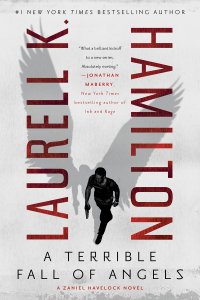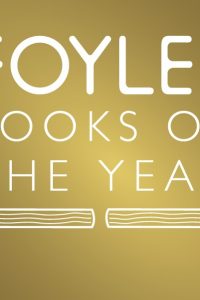Thanks to yesterday’s northeastern Snowmageddon, I was able to plow through a re-read of Heinlein’s Double Star. In short: More than 50 years past initial publication, this Hugo Award Winner holds up and remains an enjoyable read.*
Most of its endurance can be explained by the book’s focus on one character, the Great Lorenzo Smythe, rather than on the technology around him. Smythe is a down on his luck actor, sitting in a bar, hoping to hustle some credits out of a stranger. In walks Dak Broadbent, a spacer who eventually makes Smythe an offer he can’t refuse — an acting challenge that will keep a potential human/martian war from igniting.
Acting — in the actual past and in Heinlein’s imagined future — is not a tech heavy profession. While the modes of experiencing performances have changed, the basic tools will always remain the same. Acting is about what an actor can do with her body, her voice and her brain that drives the character. Even James Cameron will cop to this.**
The world against which Smythe exists is simply but thoroughly painted by Heinlein, as he does so well. Mars, Venus, the Moon all have major human settlements. On Mars, the humans are working to co-exist with the Martians, who are easily recognized as the same Martians from 1961’s Stranger in a Strange Land. There are futuristic breathing apparatuses and physics-defying space ships. Again, Heinlein, like so many writers of his era, failed to predict cell phones. And, again, a cell phone would have greatly changed bits of the plot.
Heinlein’s knee-jerk heteronormativity shows up here, too. When Broadbent invites Smythe to a hotel in order to discuss the job at hand, Smythe muses, “You don’t pick up a stranger in a bar and then insist that he come to a hotel room — well, not one of the same sex, at least.” Indeed.
Because Double Star is about Smythe’s journey from self-absorbed prig into a fully functional Heinleinian human, all of the moments like these that signal the book’s age don’t feel nearly as important as what Heinlein does to his character. Double Star is Smythe’s book. Even the standard Heinleinian didactic rants — here focused on the usefulness of politics and ethics — flow seamlessly into the narrative as Smythe ponders his ideals rather than jut out like awkwardly inserted lecture clumps.
Which isn’t to say that Heinlein doesn’t opine about some of his favorite topics, just that said opines*** are organically integrated. Like this one, which is part of a speech Smythe gives in a press conference:
“Let us protect our own — but let us not be seduced by fear and hatred into foolish acts. The stars will never be won by little minds; we must be as big as space itself.”
Fifty years on, we still forget this. Will we have a better grasp of the concept fifty years on?
——————————————–
* Somehow,
Jo Walton and I are on a similar rereading kick. And the laughable “modern” technology — like vacuum tubes and robot diaper changers — as well as the unsettling relationship factors Walton finds in
The Door Into Summer are entirely absent in
Double Star, which helps keep a modern reader from being thrown out of the story as violently.
** I am now seized by a compulsion to re-read Varley’s
The Golden Globe, if only to see how he approached the actor’s craft.
*** It is too a word, just maybe not when used this way.






I always thought that DOUBLE STAR was inspired by an obscure British film called I WAS MONTY'S DOUBLE. If you look at the release dates for the movie and the novel, that works out about right.
–Gardner Dozois
This is one of my favorite Heinlein books. Not my favorite which is The Moon is a Harsh Mistress but still way up there.
Possibly, one of the reasons I like it so well still (now that I'm older), is that the main character definitely grows through the course of the book. Heinlein wrote a quite a few books where that happened but a lot of those characters were young adults, where that was too be expected. Here you have an older adult character, who starts out very egocentric and narrow but who grows incredibly as a human being during the course of the book.
Of course, it could just be because that was the role that he undertook, i.e., he was just playing a part. However, it seems much more like he actually internalized the part he was playing and grew to fill it.
Of course by today's standards there are quite a few comedy bits that come across as corny (may have even then although I'm not sure they struck me that way when I first read them by in my early teens).
In my opinion, definitely worth a reread or reading for the first time if you've never done so.
Ron Larson
The Door into Summer and Double Star (both first published in 1956) have to be considered together, I think, as a unique class of Heinlein novels: the CONCISE adult novel. I only wish there had been more than two such novels from him.
– gottacook
"Again, Heinlein, like so many writers of his era, failed to predict cell phones."
He did that in the first pages of Between Planets, where the protagonist casually pulls his phone out of his bag to answer while he and friends are horse-riding.
There also seem to be something very cell phone-like in [I]The Puppet Masters[/I].